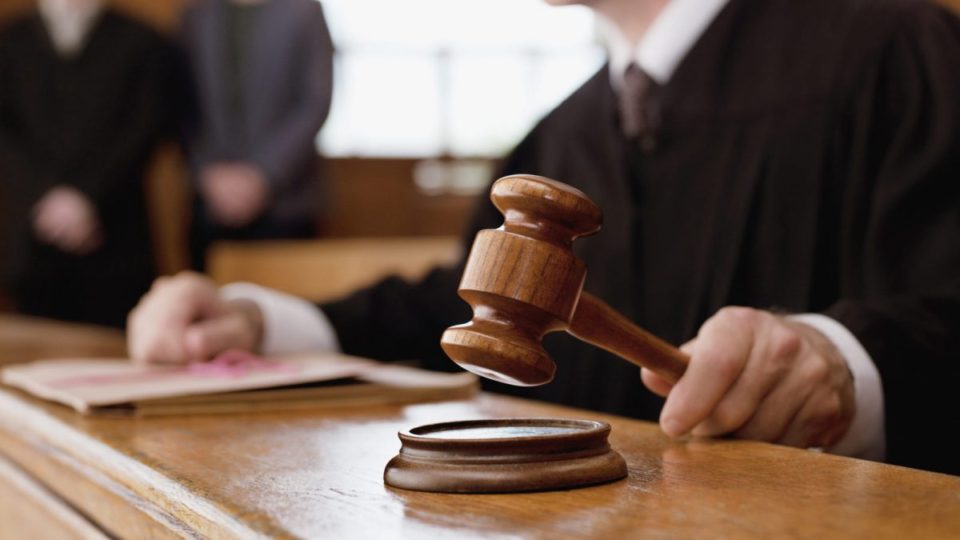- Legal Education and Access Portal
The Operation of the Rule of Law in the Legal Systems of the United Kingdom and Pakistan
INTRODUCTION
The Rule of law is a constitutional principle deep-seated in modern constitutions as is clear from its express references in the Constitution Reform Act 2005 in the United Kingdom and Art.4 of the Constitution of Pakistan, 1973. It has a long history originating from Aristotelian writing and Magna Carta 1215. There is a lack of consensus, notwithstanding contemporary relevance, on its definition but it is agreed that “the courts play an integral role in maintaining (it), particularly when they hear the grievances voiced by minority groups or those who hold minority opinions.”[1]
Joseph Raz defined it as a negative value restraining government from making laws without inner morality. As such, it bound state organs to procedural fairness and propriety and made these the validating conditions of a purported law. Like this, it gave citizens’ reasons for compliance with laws even if they were against their interests or sense of justice.[2] It gave validation to laws that said that blue eyed babies be killed or that terrorist suspects be indefinitely detained so long as they were clear, intelligible, predictable, consistent, constant, prospective and made by legitimate authority. The merit of this approach is that it makes the law source-based, that is, it makes its maker identifiable. It mandates citizens to follow laws only if they are made by de jure authority such as Queen-in-Parliament in the case of UK. On this logic, if ministers made laws in the absence of a parent act they would be invalid. Likewise if supranational organisations’ made laws they would be without direct effect in the absence of an incorporating act of parliament. Its demerit, however, is that unjust laws would be valid so long as de jure authority made them. Such laws as Anti-Terrorism Crime and Security Act 2001 would be valid even if they curtailed the liberty of individuals and denied them court access.
On the other hand, Ronald Dworkin defined it as a rights conception. As such, it obligates government to protect the fundamental rights of citizens and makes these rights the validating condition of a purported law. On this logic laws such as Interception of Communications Act 1985 and Criminal Evidence (Witness Anonymity) Act 2008 are not laws because they deprive citizens of their privacy and cross-examination rights. The pro of this approach is that it abstains government from making laws that are rights-depriving. Its con is that it relies on an abstract notion of fundamental rights. It does not make it clear who is to assess the fundamentality of rights. If the government decides to protect political rights and denies social rights would be a violation of rule of law is not so clear.
UNITED KINGDOM AND RULE OF LAW
In Entick v Carrington the Courts upheld the right of Entick to peaceful enjoyment of home. However, in Malone v MPC it refused to uphold Malone’s right to privacy. In fact, in blatant violation of Lord Bingham’s sub-set that international obligations should be complied, the Court passed the Interception of Communications Act 1985 which authorized the police authorities to tap phone in certain situations.
Another pair of case will reveal the conflicting approach of court. In R v Davis, for example, the Court upheld Davis’s right to cross-examination in a criminal trial and quashed the trial court’s anonymity order. But it failed to protect the rights of the Chagosians to abode in Bancoult. These contrasting cases show that judiciary is in favour of protecting some rights, particularly those that are based on common law principles. However, it does not give citizens clarity about whether rights outside common law would be acknowledged or not. In this way the predictability of what the courts will do in a case is not so clear.
More than this, the Lord Chancellor is often seen introducing measures that make it difficult for financially constrained people to access courts. This is surprising given his/her responsibility to uphold rule of law under Constitutional Reform act 2005. The panacea here is offered by the judiciary by quashing such orders. A like of this is ex parte Witham where when court fee was imposed on people with low-income the action was said to be unlawful. It was held that s.130 of the Supreme Court Act 1981 had not authorized the Lord Chancellor to remove the immunity previously available to low-income people. However, this did not deter the subsequent Lord Chancellor from doing the same as is evident from UNISON case.
In addition, the ambiguous use of expression in legislation has also compromised the consistency of law. This is particularly true for section.3 of Human Rights Act 1998 where the use of ‘as far as possible’ has been problematic. In Ghaidan the court found this to be a special provision capable of expansive interpretation and upheld the right of the homosexual petitioner to continue the statutory tenancy even though the statute had used the expression living spouse. On the other hand, in Wilkinson the court did not let the widower to benefit from the social benefit scheme arguing that the legislative intent of the UK parliament was important which confined its meaning to widow.
Furthermore there are situations where Parliament has not shied away from overturning the decisions of the courts. Such as the overturning of decisions in Barmah Oil and R v Davis with War Damages Act 1965 and Criminal Evidence Witness Anonymity Act 2008. The only remedy available to citizens against this abuse of parliamentary supremacy is one expressed in ex parte Simms that the Courts will not override citizens’ rights unless parliament expressly repealed the right. The hope of this approach is evident from Anisminic v Foreign Compensation Commission. Here the ouster clause was interpreted in a fashion that an unlawful determination was held to be liable to judicial review.
PAKISTAN AND RULE OF LAW
The Constitution of Pakistan 1973 is a distinctive document in the history of Pakistan as it was drafted and approved by all the political parties in National Assembly. As such it “embodied the best possible arrangement to accommodate the various political parties, political issues and demands, economic interests, parties’ manifesto and so on.” [3]It is lengthy and comprehensive unlike the predecessor constitutions of 1956 and 1962. It has twelve parts; part two it deals with fundamental rights and covers range of rights from articles 4 to 28.[4]
Art. 4 deals with the right of the individuals to be dealt with in accordance with law. It states that:
(1) To enjoy the protection of law and to be treated in accordance with law is the inalienable right of every citizen, wherever he may be, and of every other person for the time being within Pakistan.
(2) In particular
- No action detrimental to the life, liberty, body, reputation or property of any person shall be taken except in accordance with law;
- No person shall be prevented from or be hindered in doing that which is not prohibited by law; and
- No person shall be compelled to do that which the law does not require him to do.
In Sh. Liaqat Hussain v Federation of Pakistan it was held that the trial of civilians for civil offences by the Military Court which had no nexus with the Armed Forces or defence of Pakistan was violation of Constitution. And the argument advanced by the Attorney General that the right to access of court does not include the right to choose a court was rejected.
In Miss Rifat Perveen v Selection Committee it was held that equality before law does not mean that all citizens are to be treated alike in all manners of circumstances. A reasonable classification has always been accepted to be valid while granting the right of equality before law provided classification is based on actual and real difference between different groups and the law while recognizing such differences adapts itself to such situation.
In Yahya Bakhtiar v The State the term equality before law means that among equals law should be equal and should be equally administered and that like should be treated alike. The doctrine of equality before law or the equal protection of law does not signify that same law applies to every situation. It means same law for same situation and not when situations are different and entirely dissimilar. In Watan Party v Federation of Pakistan due process was defined to mean right to a fair and proper trail and right to have impartial court or tribunal.
Further in Ayyaz Ahmad v Saqib Nazir, Superintendent, Central Jail, the petitioner was a convict prisoner. He was not given medical treatment as prescribed by the Medical Specialist. Under Rule 1974 of Pakistan Prison Rules 1978 facility of health was prisoner’s basic necessity. It was further guaranteed in Art. 4 as it imposed a duty on local administration, hierarchy of jail and government to provide health facility to prisoners. The concerned authorities were directed to provide facility to the petitioner.[5]
The petitioner was a member of National Assembly. He argued that he had been denied development fund. When in fact all elected representatives had equal right to allocation of development funds. His argument was that public functionaries had not acted in good faith, honesty and within legal parameters in exercising their function. That by so doing his Art. 4 had been violated.
CONCLUSION
From the discussion of the two legal
systems, it is clear that rule of law is an important protection against
usurpation of citizens’ rights by the government. In the United Kingdom it serves
to protect property rights, right to cross-examination and affordable access to
courts. In Pakistan, on the other hand, it means right to choose a court, right
to health facility in prison and right to hearing by a fair tribunal.
[1] United States Courts, ‘Overview – Rule of Law’ (US Courts Official Web Page) < https://www.uscourts.gov/ educational-resources/educational-activities/overview-rule-law> accessed 20 Nov 2019 .
[2] Lisa Welbey and Harriet Samuels, Complete Public Law: Text, Cases, and Materials (2015).
[3] Hamid Khan, Constitutional and Political History of Pakistan, (OUP, 3rd Edition, 2017).
[4] Kamal Azfar, Pakistan Political and Constitutional Dilemmas.
[5] 2017 PLD 32 (HC).




